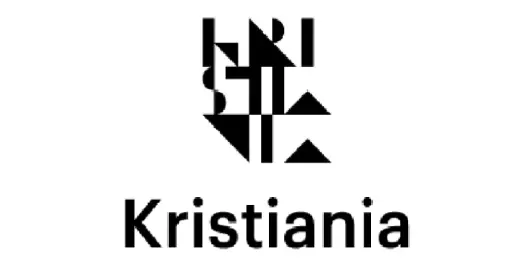Ledig stilling på Universitetet i Oslo
Blindern og Urbygningen (Foto: Wikimedia og Colourbox)
PhD Research Fellow in formal analysis of concurrent systems
Deadline: 31.08.2022
About the position
Universitetet i Oslo
The University of Oslo is Norway’s oldest and highest rated institution of research and education with 28 000 students and 7500 employees. Its broad range of academic disciplines and internationally esteemed research communities make UiO an important contributor to society.
The Department of Informatics (IFI) is one of nine departments belonging to the Faculty of Mathematics and Natural Sciences. IFI is Norway’s largest university department for general education and research in Computer Science and related topics.
The Department has more than 1800 students on bachelor level, 600 master students, and over 240 PhDs and postdocs. The overall staff of the Department is close to 370 employees, about 280 of these in full time positions. The full time tenured academic staff is 75, mostly Full/Associate Professors.
Position as PhD Research Fellow in formal analysis of concurrent systems available at the Reliable Systems group (PSY), Department of Informatics, University of Oslo.
No one can be appointed for more than one PhD Research Fellowship period at the University of Oslo. Starting date no later than 31.12.2022.
The PhD research fellowship is a full-time position with a fixed-term period of (3) three years. Candidates who can and want to contribute to teaching and supervision at the department may be offered an additional year of teaching-related compulsory duties in the early stages of the contract period. In this case, the appointment period will be extended to a total of four years, where compulsory duties will be spread out over the full contract period, averaging 25% per year.
Job description
A strong persisting trend in computer and software systems is the omni-presence of distributed and concurrent systems, as witnessed by multi-core architectures, networks and multiprocessor systems on chip, cloud computing, IoT, etc. The speed at which these innovations take place bears the risk that we lose control of the reliability and predictability of the software fabric on which our world increasingly depends. The increasing degree of concurrency introduces new dimensions of complexity when it comes to guarantee the safety, security and functional correctness, creating non-determinism and tangled synchronisation problems that are difficult to deal with.
The project aims to develop formal semantic-based analysis methods for tackling modern concurrency abstraction and memory models for multi-threaded programming languages and systems. That also involves developing and using appropriate software analysis and synthesis tools to ensure synchronisation-related correctness properties, such as deadlock-freedom, sequential consistency, functional determinacy or absence of information leakage. The results from our theoretical investigations will be encapsulated in programming libraries and analysis algorithms that fit into the existing eco systems of the chosen host languages.
Methodologically, the research will target mainly light-weight verification met ods, analysis methods and corresponding tools that work automatically, without interactive user intervention. In particular, type-based analyses and synthesis methods to check for resource-consumption, conformance with interface specif cations, race freedom, etc.
The position is within the group Reliable Systems. The research group in formal methods at the Department of Informatics focuses on developing practical formal modeling languages and analysis methods that can be applied to large and complex state-of-the-art systems. Activities of the group also include program verification and semantics, and integrated and interdisciplinary formal methods such as formal methods for, e.g., security and privacy, robotics, digital twins, IoT and AI. See the group's webpage for an overview. The group is internationally and nationally active in various projects, so there will be opportunities for international collaboration and exchange.
Qualification requirements
The Faculty of Mathematics and Natural Sciences has a strategic ambition to be among Europe’s leading communities for research, education and innovation. Candidates for these fellowships will be selected in accordance with this, and expected to be in the upper segment of their class with respect to academic credentials.
Required qualifications
- Master’s degree or equivalent in in a relevant field such as computing/informatics/software engineering.
- Foreign completed degree (M.Sc.-level) corresponding to a minimum of four years in the Norwegian educational system.
- Solid knowledge on fields including algorithms, formal methods, program analysis, as well as software development skills and experience will be considered an advantage when ranking candidates.
- Preferably, the candidate has written a master thesis on a topic relevant to the position.
- The evaluation may also consider further aspects of excellence, such as being ambitious, intellectually curious, and dedicated.
Candidates without a Master’s degree have until 30 June, 2022 to complete the final exam.
Grade requirements:
The norm is as follows:
- the average grade point for courses included in the Bachelor’s degree must be C or better in the Norwegian educational system
- the average grade point for courses included in the Master’s degree must be B or better in the Norwegian educational system
- the Master’s thesis must have the grade B or better in the Norwegian educational system
- Fluent oral and written communication skills in English
- English requirements for applicants from outside of EU/ EEA countries and exemptions from the requirements:
The purpose of the fellowship is research training leading to the successful completion of a PhD degree.
The fellowship requires admission to the PhD programme at the Faculty of Mathematics and Natural Sciences. The application to the PhD programme must be submitted to the department no later than two months after taking up the position. For more information see this and this.
We offer
- Salary NOK 501 200 – 544 400 per year depending on qualifications and seniority as PhD Research Fellow (position code 1017)
- Attractive welfare benefits and a generous pension agreement
- A highly dynamic and motivated team of international researchers
- Career development programmes, professional courses and workshops
- Oslo’s family-friendly surroundings with their rich opportunities for culture and outdoor activities
How to apply
The application must include:
- Cover letter - statement of motivation and research interests
- CV (summarizing education, positions and academic work - scientific publications)
- Copies of the original Bachelor and Master’s degree diploma, transcripts of records and
- Documentation of English proficiency
- List of publications and academic work that the applicant wishes to be considered by the evaluation committee
- Names and contact details of 2-3 references (name, relation to candidate, e-mail and telephone number)
- a research proposal describing aims for the PhD research.
The application with attachments must be delivered in our electronic recruiting system, please follow the link “Apply for this job”. Foreign applicants are advised to attach an explanation of their University's grading system. Please note that all documents should be in English (or a Scandinavian language).
Applicants will be called in for an interview.
Formal regulations
Please see the guidelines and regulations for appointments to Research Fellowships at the University of Oslo.
No one can be appointed for more than one PhD Research Fellowship period at the University of Oslo.
According to the Norwegian Freedom of Information Act (Offentleglova) information about the applicant may be included in the public applicant list, also in cases where the applicant has requested non-disclosure.
The University of Oslo has an agreement for all employees, aiming to secure rights to research results etc.
The University of Oslo aims to achieve a balanced gender composition in the workforce and to recruit people with ethnic minority backgrounds.
Contact information
For further information please contact:
For questions regarding the recruitment system, please contact HR Adviser Therese Ringvold, e-mail: therese.ringvold@mn.uio.no.
Apply for this job













